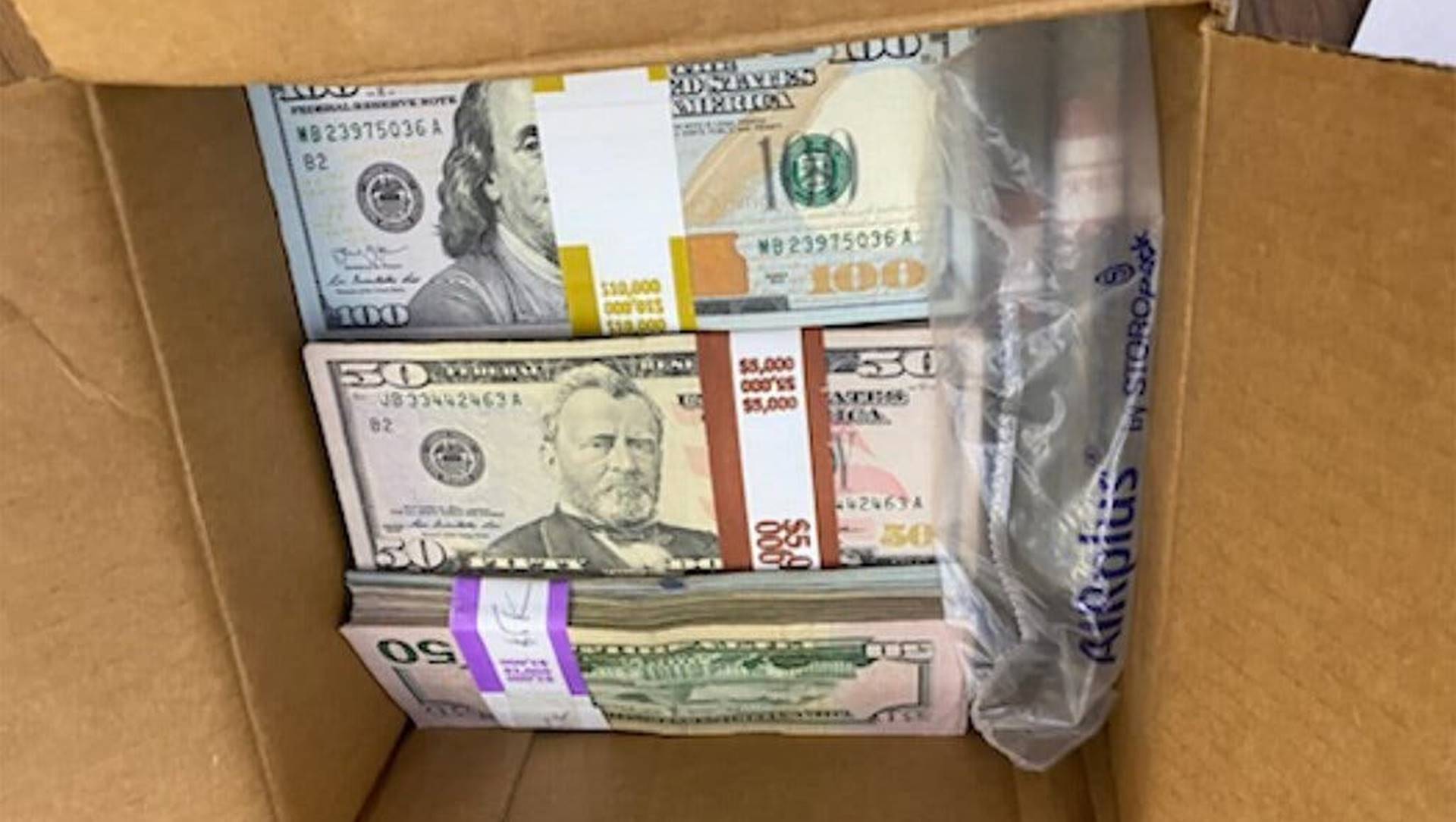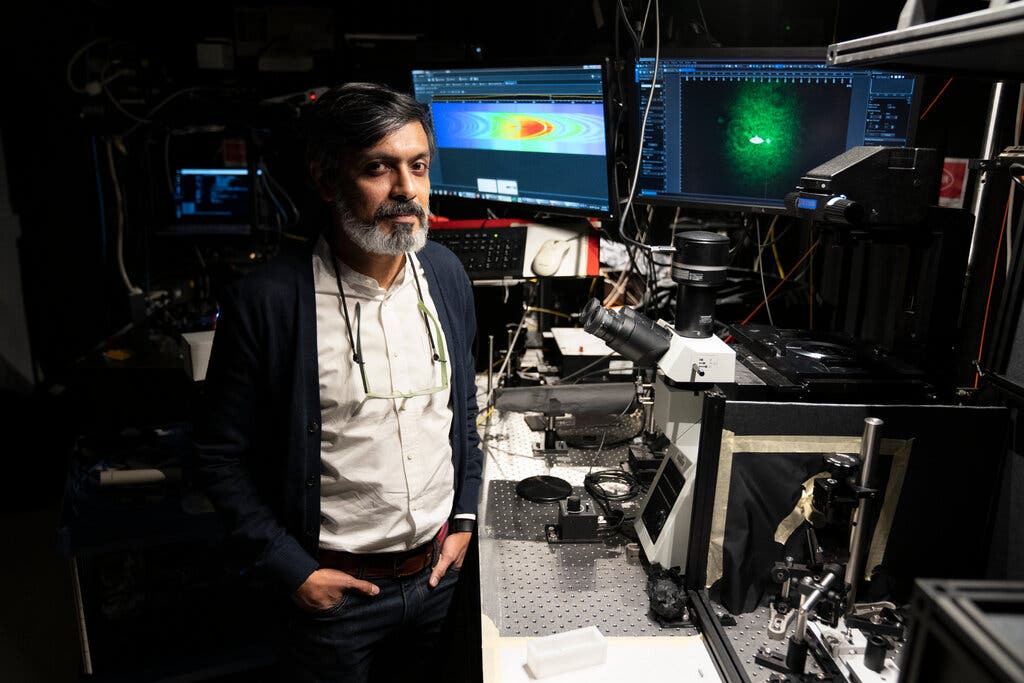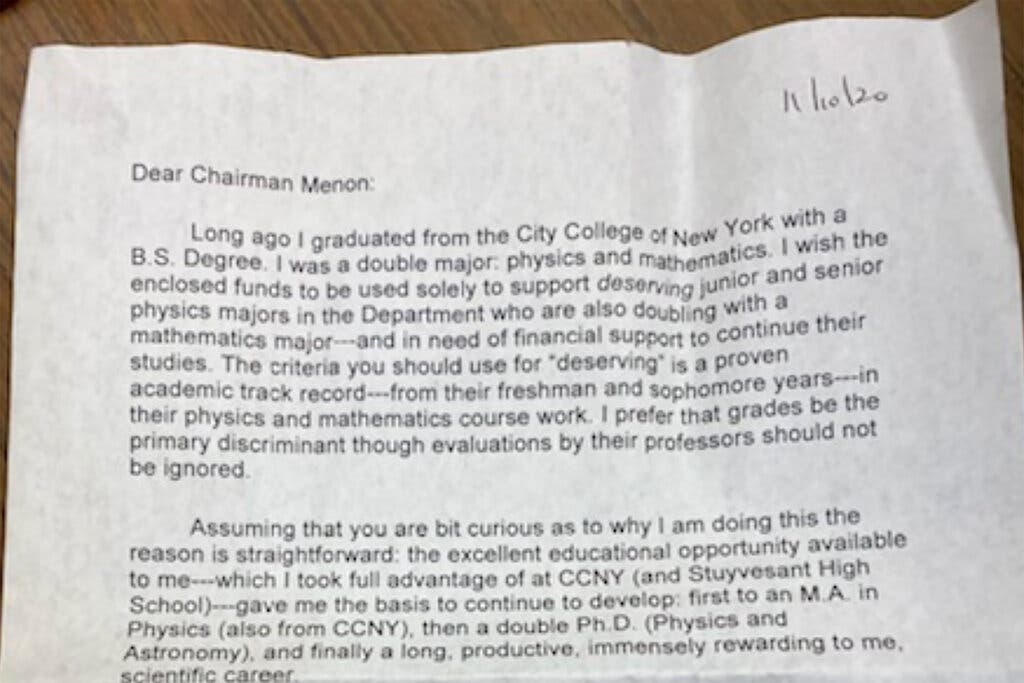When he returned to teaching in-person this semester, Vinod Menon, a physics professor at City College of New York in Harlem, finally looked through a pile of office mail and found a cardboard box the size of a toaster

The box, heavy enough to warrant $90 in postage for priority U.S. mail, was addressed to “Chairman, Physics Department” — his title.
Maybe it was a token of thanks from a former student, Dr. Menon thought, as he inspected the package, which was postmarked Nov. 10, 2020. It had been sitting for more than nine months, first in the campus mailroom and then in the physics office.
For Dr. Menon, 49, who specializes in nano- and Microphotonics, an exciting moment usually comes in a campus laboratory with some breakthrough in the exploration of the way light interacts with matter on a quantum level.
Altruist Keanu Reeves lives in an ordinary apartment, wanders the city, rides the subway
But the matter contained in the cardboard box gave him quite a charge. It was full of $50 and $100 bills bundled in paper bands, totaling $180,000.
An enclosed letter to Dr. Menon explained that the cash was a donation meant to help needy physics and math students at City College.
“It was a complete shock — I know a lot of academics and I’ve never heard of anything like this,” he said. “I didn’t know if the college accepted cash, so I didn’t know if they’d keep it.”
The letter explained the donor’s motivations. “Assuming that you are bit curious as to why I am doing this, the reason is straightforward,” wrote the donor, who said he or she “long ago” took advantage of the “excellent educational opportunity” of attending both Stuyvesant High School and earning a bachelor’s and master’s degrees in physics at City College, which helped lead to “a long, productive, immensely rewarding” scientific career.

The note was unsigned, and the name on the return address, Kyle Paisley, was not listed as a graduate in the college’s records.
City College has benefited from larger donations. It has raised $17.2 million in funds since the beginning of the fiscal year in July.
But Dr. Menon said the gift’s value was less about the dollar amount and more about “a testament to what the physics department has been providing all these years.”
He noted that since the annual tuition at City College is $7,500, the donation would go much further than at an expensive private institution in providing scholarships.
Officials, both at the college and the entire CUNY system, could not recall a similar type of donation. “Kyle Paisley” seemed to be a phony name, said Chief Pat Morena, who heads the Department of Public Safety at City College, the founding school in the city’s 25-college public university system, the largest public urban university system in the country.
“Who gets $180,000 sent to them in currency, and the person who’s sending it is anonymous?” he asked.
This man won a Guinness World Record for his tree that bears 10 types of fruit
Also notable was that the donation was earmarked for the physics department, which has had a long and distinguished history. In 1921, Albert Einstein gave one of his earliest U.S. lectures there, and the department has long punched above its weight, with three of its alumni becoming Nobel laureates in physics.
With the coronavirus pandemic snarling mail delivery on campus, the unobtrusive box probably sat for months in the college’s main mailroom like “a regular, everyday package” and was finally taken with other accumulated parcels to Dr. Menon’s office, most likely in March, said Robin Cruz, who runs the mailroom.

But Dr. Menon had been teaching remotely since March 2020. He conducted research in a lab across campus from his chairman’s office and did not check his office mail until late summer.
“It’s crazy that it just sat in the mailroom, or even that it was sent by mail — the person trusted the system so much,” said Dr. Menon, who was leery of even touching the money when he opened the box.
The money was “treated like evidence” and stored in a safe in the public safety office, whose officials contacted federal authorities “to see if it was possible that this was proceeds from criminal activity,” Chief Moreno said.
Based on information on the bands bundling the cash, federal agents determined that it had been withdrawn from several banks in Maryland in recent years and was not connected to criminal activity, the chief said.
The address on the package, an actual house in Pensacola, Fla., did not lead to anyone connected to the donation.
Officials from the federal postal inspector’s office were unable to obtain video of the package being sent. So after a month-long investigation, the authorities told college officials that the donor’s identification “really was untraceable,” Chief Morena said.
With that, CUNY’s Board of Trustees was cleared to formally vote to accept the gift at its meeting on Dec. 13.
They did so with giddy elation.
“That is absolutely astonishing, $180,000 in cash in a box,” said the board’s chairman, William C. Thompson, in introducing the vote.
Asked by a board member if this was a first, CUNY’s chancellor, Félix V. Matos Rodríguez, said, “Clearly in a box, I think it’s a first.”
A board member, Lorraine Cortés-Vázquez, said, “We have to bronze that box and put it in a display case as the most generous gift.”
She praised school officials for the following procedure: “They were like, ‘We are not sending this back — we will do all the due diligence necessary.’”
Dr. Menon said the money would have an outsize impact on the department, which would put it toward funding two full-tuition scholarships each year for more than a decade. In the spirit of the donation, he said, the fellowship would require the students to “give back in some way,” perhaps by peer mentoring.
The professor, who emigrated from India in 1996, has studied and conducted research at public universities and private institutions, including Princeton University and the Massachusetts Institute of Technology.
Despite offers to teach at elite schools, Dr. Menon said he has remained at City College largely because of its commitment to offering affordable education to a diverse body of students, many of them immigrants. Many of his students come from families who have never attended college, and many have never been inside a laboratory, he said.
“The impact factor of teaching here is much higher,” he said. “It’s a place where you can elevate somebody.”
Napomena o autorskim pravima: Dozvoljeno preuzimanje sadržaja isključivo uz navođenje linka prema stranici našeg portala sa koje je sadržaj preuzet. Stavovi izraženi u ovom tekstu autorovi su i ne odražavaju nužno uredničku politiku The Balkantimes Press.
Copyright Notice: It is allowed to download the content only by providing a link to the page of our portal from which the content was downloaded. The views expressed in this text are those of the authors and do not necessarily reflect the editorial policies of The Balkantimes Press.
